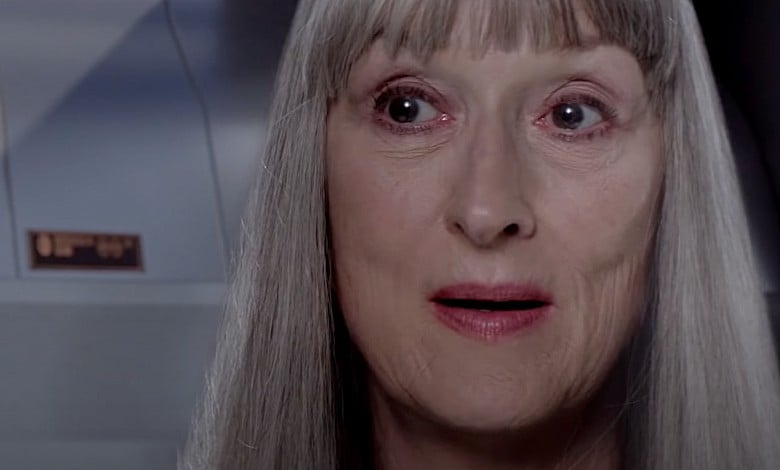‘The Giver’ Reveals Utopia’s Steep Price Tag
Big-screen adaptation of Lois Lowry's cautionary tale leaves a mark

When I look at kids’ and YA books, they’re often loaded with big, ticklish issues that adult novels rarely seem to touch.
While we grown-ups thumb through “50 Shades of Grey,” our children are reading books that plumb the depth of love and loss, justice and grace, freedom and order. And nowhere are those issues more powerfully explored than in Lois Lowry’s book “The Giver,” brought to vibrant life this month on the big screen.
The movie takes place in what would appear to be a near-perfect community. It’s a land where anger, discrimination and pain have been all but eliminated. People don’t lie or steal. Everyone has a job, and when they get old they don’t simply retire to the front porch and grumble at passing kids: They move to another little Elysium called Elsewhere, we’re told.
Everyone seems to have a place here in this wonderful little world. Everyone fits, it seems. If this world was made of LEGOs, you could pretty much guarantee that everyone would be singing “Everything is Awesome” all the time.
Jonas (Brenton Thwaites) would be singing along with everyone else—until, at least, the day that he and his friends are given their specially selected jobs. Jokester Asher (Cameron Monaghan) becomes a drone pilot. Pretty Fiona (Odeya Rush) is chosen to be a caregiver for the community’s newborns. And Jonas, he’s given arguably the community’s most important job: To become the next Receiver of Memory.
It’s the Receiver’s job to hold the collective history of its people in his mind and soul—a history so full of barbarism that no one but the Receiver is allowed to know it.
“Your teaching involves pain,” the Chief Elder (Meryl Streep) confesses to Jonas. “Pain beyond anything you know.”
But as Jonas begins his lessons with the former Receiver (Jeff Bridges)—who now calls himself the Giver—he learns that this history, these memories, are filled with more than pain. They’re loaded with sensations unknown in the community: Cold. Color. Joy. Love. And he begins to wonder whether the community, in its effort to eradicate discomfort, also destroyed something far more precious: Life itself.
“The Giver” movie doesn’t pack quite the emotional punch that Lowry’s 1993 book does. But it is a competent and faithful retelling that manages to delve deeply into the book’s major theme: The joy, and cost, of freedom.
It’s pretty timely, given the social and political climate we’re in. Every day, we try to balance our freedom with our desire for security. We relinquish some of our privacy in the hopes that it’ll keep us safer. We don’t let our children go anywhere on their own anymore—and if we see kids in a park by themselves, we might just call the police.
And really, is that so hard to understand? We want our kids to be safe, after all. We want our lives to be as comfortable and secure as possible.
RELATED: DYSTOPIAN ‘LEAVE THE WORLD BEHIND’ HATES AMERICA
The community in “The Giver” went to extremes to get just such a world. And they got it—a place free of war and conflict, where discomfort of all sorts is whittled down to a minimum. But Jonas discovers that to get such a world, you have to give up so much.
There’s a spiritual angle to these themes, too—as both the book and the movie are well aware. And throughout the film, an apple serves as a symbol for Jonas’ growing understanding of the true depth and breadth of life.
When he first sees color, he sees it in the skin of an apple. When he decides to go off the community’s regimen of mind-numbing drugs, he uses an apple to trick the dispenser. And indeed, it is almost like Jonas bit into a piece of forbidden fruit filled with knowledge and power and frightening wonder.
But the community is hardly Eden, and certainly not worth preserving. Not at the cost of the freedom lost. And remember that God, according to Christian doctrine, is a big proponent of both truth and freedom. Christians believe that He gave us free will—even though He knew we’d likely make a mess of things sometimes.
“When people have the freedom to choose,” the Chief Elder says, “they choose wrong, every single time.”
Too often that’s true. We see glimpses of that misuse of freedom—the memories of pain and war that Jonas receives. And yet, the mess of freedom is still a gift. It’s still a treasure. And “The Giver” suggests to viewers that freedom is what makes life worth living.
Paul Asay has written for The Washington Post, Christianity Today, Beliefnet.com, and The (Colorado Springs) Gazette. He writes about culture for PluggedIn and wrote the Batman book, “God on the Streets of Gotham” (Tyndale). He recently collaborated with Jim Daly, president of Focus on the Family, on his book “The Good Dad.” He lives in Colorado Springs with wife Wendy and his two children. Follow him on Twitter at @AsayPaul.
